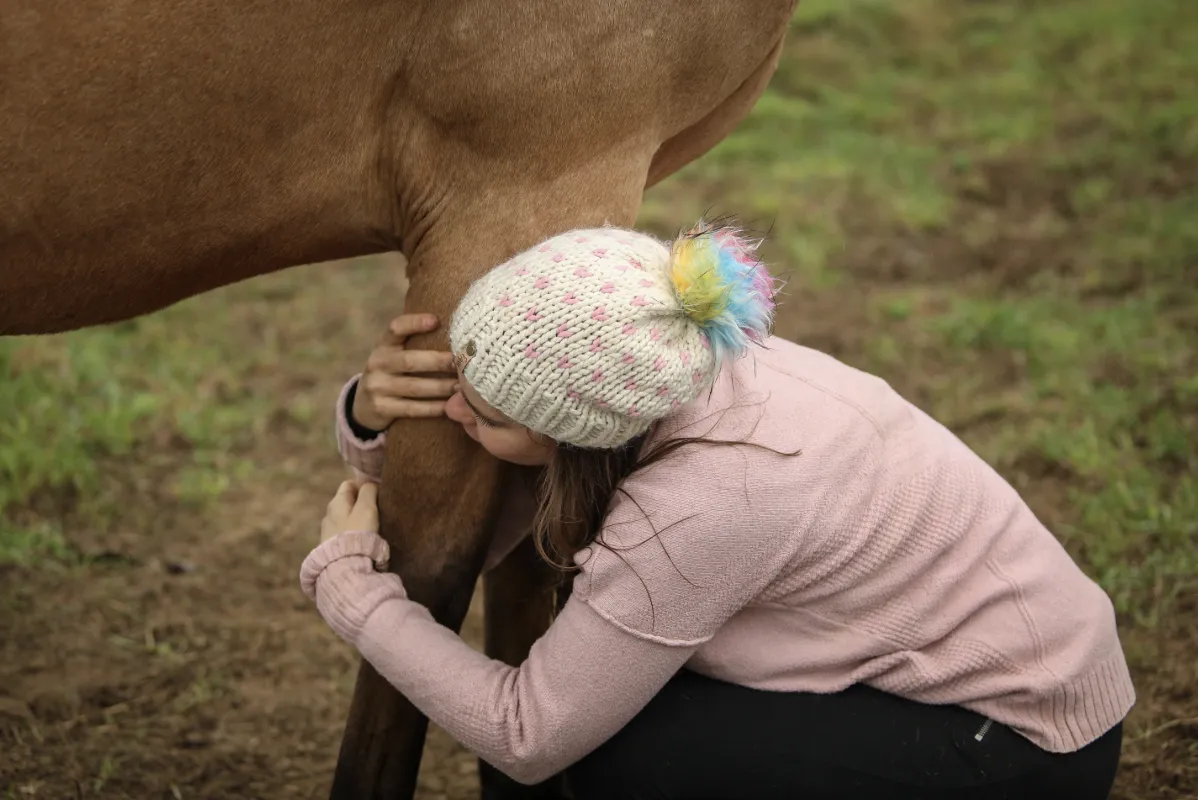
The Problem with Agreeable Horses: Why “Good Behavior” Isn’t Always a Good Sign
🧨 Introduction:
We’re taught to believe that an obedient, quiet, push-button horse is the gold standard.
They don’t argue.
They do what they’re told.
They keep you safe.
But what if I told you…
That’s not always a sign of training success?
What if it’s a red flag?
Because a horse that never says “no”…
Might not feel safe saying anything at all.
This blog explores what your horse’s silence might be hiding, how obedience can mask trauma, and why empowering your horse to express themselves isn’t just good for them—it’s essential for your growth too.
🧠 The Myth of the “Perfect Horse”
A horse that never challenges you, never resists, never hesitates—
may have learned that their voice doesn’t matter.
In psychology, this is called fawning—the freeze/appease trauma response.
It’s not connection.
It’s compliance out of fear.
These horses aren’t thriving.
They’re performing—because it’s the safest thing to do.
And yet we praise them for it.
We reward their silence… while slowly disconnecting them from their soul.
🐴 Why Obedience Can Be a Warning Sign
Here’s what an overly obedient horse might actually be saying:
“I’ve learned it’s not safe to say no.”
“If I express emotion, I’ll be punished or ignored.”
“You won’t listen anyway, so why bother?”
“I’ll shut down before I get shut out.”
Sound familiar?
It should—because many of us grew up this way, too.
💔 Push-Button Horse = Push-Down Human
If your horse is a robot, ask yourself:
👉 Where in your life do you feel like you have to behave?
👉 Where are you staying “within the lines” out of fear, not freedom?
👉 Where have you confused being “easy to handle” with being worthy of love?
Your horse is a mirror.
And a horse that’s stopped expressing is often reflecting a human who’s done the same.
✋ When Your Horse Says No
On the flip side—when a horse does resist, push back, say “no”…
It’s not a problem.
It’s a conversation.
In my sessions, I’ve seen it over and over:
A horse labeled “difficult” who was simply overwhelmed
A client shocked to discover their horse wasn’t stubborn, just sore
A liberty session where a horse walked away, and it broke the client’s heart—because they realized they always abandoned themselves, too
The horse’s “no” is the gateway to a deeper “yes.”
Yes to connection.
Yes to truth.
Yes to healing.
🌱 Why Empowering Your Horse to Have an Opinion Is a Gift
When we create a space where our horse can say no:
We build trust
We open the door to real communication
We teach them (and ourselves) that relationship > results
It’s good for their brain, too. Neuroscience shows that agency—the ability to make choices—supports learning, emotional resilience, and overall nervous system regulation in both horses and humans.
It makes your horse more adaptable, not less.
More curious. More connected. More alive.
And it pushes you to grow in compassion, creativity, and presence.
🪞You’re Not Just Training a Horse—You’re Rewriting Your Story
If you want to break free of old stories—about being good, quiet, polite, small…
You have to stop training your horse to act that way, too.
Because when you do, you’re subconsciously reinforcing:
“It’s safer to be silent than honest.”
“Connection means obedience.”
“My needs come second.”
But you can choose a new story.
And your horse is inviting you into it—every time they hesitate, resist, or walk away.
The question is:
Are you willing to listen?
📖 Want to explore this even deeper?
Read the full post: The Problem with Agreeable Horses
👉 Rea it again.
🎓 And if you're ready to truly understand what your horse is mirroring…
Join the webinar: Your Horse, Your Mirror
📆 August 23 at 8PM CET
🎟️ Save your spot now
